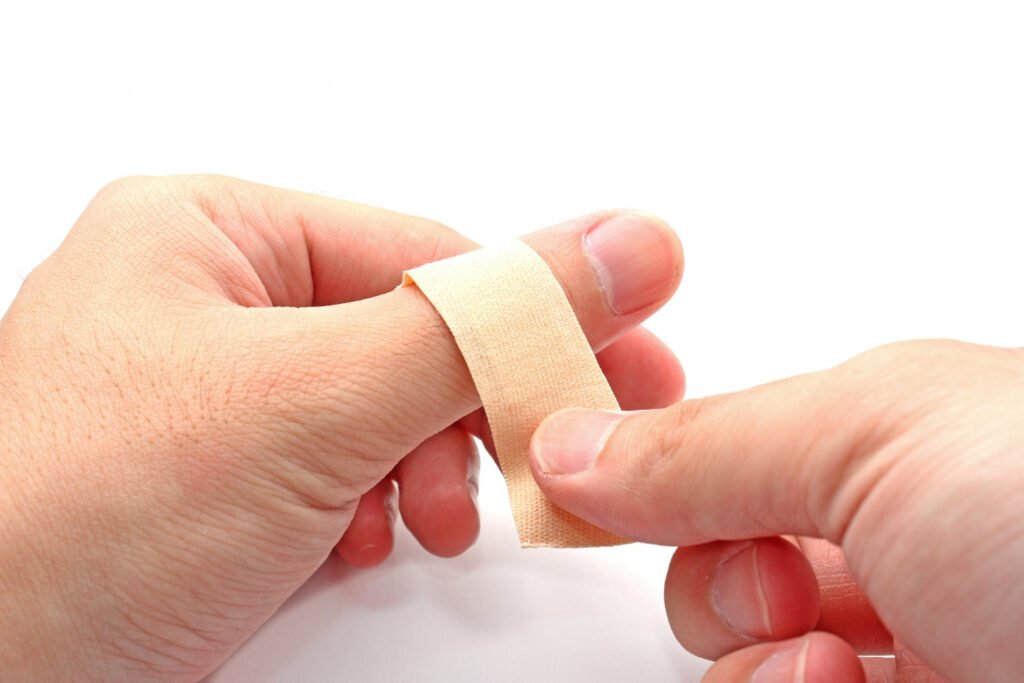Wound care is a critical aspect of healthcare that is often overlooked until a problem arises. Whether stemming from an injury, surgery, or a chronic condition, wounds require appropriate attention to promote healing and prevent complications. This article explores the various types of wounds, signs that professional help for wound care may be needed, risk factors affecting healing, and the benefits of seeking medical assistance. Understanding these elements can empower individuals to make informed decisions about their health and recovery.
Understanding Wound Types
Acute Wounds
Acute wounds are typically the result of sudden injuries, such as cuts, scrapes, and burns. They generally heal within a predictable timeframe and can often be managed with basic first aid. Examples include minor abrasions and lacerations that occur during daily activities, such as cooking or playing sports. Acute wounds usually undergo a straightforward healing process that can be broken down into three phases: inflammatory, proliferative, and maturation.
During the inflammatory phase, the body’s immune response is activated to control bleeding and prevent infection. In the proliferative phase, new tissue begins to form, and in the maturation phase, the wound strengthens. While most acute wounds heal without complications, some may become infected or fail to heal properly if not treated appropriately.
Chronic Wounds
Chronic wounds are often more complex and can result from underlying health issues such as diabetes or vascular disease. These wounds do not follow the normal healing trajectory and can persist for weeks or months. Common types of chronic wounds include pressure ulcers, venous ulcers, and diabetic foot ulcers.
The management of chronic wounds requires a comprehensive treatment plan that addresses both the wound itself and the underlying health conditions. Such wounds may require specialized dressings, debridement, and collaboration with healthcare professionals to optimize healing and minimize complications.
Surgical Wounds
Surgical wounds are created intentionally during medical procedures and typically fall into two categories: closed and open. Closed wounds occur when surgical incisions are stitched or stapled, while open wounds may involve drains to aid in fluid removal. Post-operative care is critical to ensure that these wounds heal properly and that any potential complications, such as infections, are addressed early.
It is important for patients to follow their surgeon’s post-operative care instructions meticulously, including keeping the wound clean and dry, monitoring for signs of infection, and attending follow-up appointments. Adhering to these guidelines can significantly reduce the risk of complications.
Learn more about the type of wounds here.

Signs That Wound Care is Necessary
Persistent Pain or Discomfort
While some discomfort is expected during the healing process, persistent or worsening pain can indicate a problem. If the pain does not subside with standard over-the-counter medications or worsens several days after an injury or surgery, it may be essential to consult a healthcare professional. Chronic pain can be a sign of infection, improper healing, or other complications that require medical intervention.
Patients should also be aware of other symptoms accompanying pain, such as swelling, redness, or heat in the area. These symptoms could signify that a wound is not healing correctly and that specialized care may be necessary.
Signs of Infection
Infections are one of the most common complications associated with wounds. Indicators of infection include increased redness, swelling, warmth, and the presence of pus or foul-smelling drainage. Fever or chills may also accompany these signs, indicating that the body’s immune system is responding to an infection.
If any of these symptoms arise, it is crucial to seek medical advice promptly. Early intervention can often prevent the infection from worsening, leading to more severe complications or extended healing times.
Delayed Healing
Wounds that do not show signs of improvement within an expected timeframe should be re-evaluated. For acute wounds, a lack of healing after a few days may signal an issue, while chronic wounds should be assessed regularly. Factors such as age, nutrition, and underlying health conditions can significantly influence healing rates, and it may be essential to seek professional guidance to address these variables.
Consulting with a healthcare provider can provide insights into potential barriers to healing and may lead to the development of a tailored treatment plan to enhance recovery.
Risk Factors for Complicated Wound Healing
Underlying Health Conditions
Several health conditions can impede the natural healing processes of wounds. For instance, diabetes can affect blood circulation and nerve function, making it challenging for wounds to heal properly. Similarly, conditions affecting blood flow, such as peripheral artery disease, can lead to chronic wounds and complications. Chronic conditions often require a multidisciplinary approach to manage both the wound and the underlying issues effectively.
Patients with compromised immune systems, whether due to conditions like HIV/AIDS or medications such as corticosteroids, may also experience delayed wound healing. Understanding these factors is crucial in preventing complications and developing effective treatment strategies.
Age and Skin Integrity
As individuals age, their skin becomes thinner and loses elasticity, which can predispose them to injuries and complicate the healing process. Older adults often have slower cellular regeneration, making wounds more susceptible to infection and delayed healing. Special care and attention are often required for elderly patients when managing wounds.
Maintaining skin integrity through proper hydration, nutrition, and protection from the environment can help mitigate some of these risks. Regular skin assessments can also identify potential problems early, allowing for timely intervention.
Medications and Their Impact
Certain medications can significantly influence wound healing. For example, anticoagulants, commonly prescribed for heart conditions, can complicate the healing process by increasing the risk of excessive bleeding. Likewise, medications that suppress the immune system can hinder the body’s ability to fight infections, making it essential for patients to discuss their medication history with healthcare providers when seeking wound care.
Healthcare professionals can provide recommendations on managing medications in conjunction with wound treatment, ensuring that patients receive optimal care tailored to their circumstances.

Benefits of Seeking Professional Help
Accurate Diagnosis
One of the primary advantages of seeking professional help for wound care is the ability to receive an accurate diagnosis. Healthcare providers can assess the wound’s condition, determine its type, and identify any underlying factors contributing to delayed healing. This thorough evaluation is essential for developing a targeted treatment plan that addresses both the wound and any complicating factors.
Inaccurate self-assessment can lead to inappropriate treatment, possibly exacerbating the problem. By consulting professionals, patients can avoid making common mistakes, such as using the wrong dressings or failing to address signs of infection early.
Advanced Treatment Options
Professional wound care services often offer access to advanced treatment options that are not available through standard home care. These may include specialized dressings, wound debridement techniques, and therapies such as negative pressure wound therapy or hyperbaric oxygen therapy. Such interventions can significantly enhance healing outcomes and reduce the risk of complications.
Additionally, specialized wound care clinics can provide multidisciplinary teams that include physicians, nurses, and dietitians, ensuring a comprehensive approach to treatment. This collaboration often leads to better results compared to a one-size-fits-all approach to wound care.
Prevention of Complications
Seeking professional help for wound care can effectively prevent complications, such as infections, delayed healing, or even the need for surgical intervention. Healthcare providers are trained to recognize early warning signs of complications and can implement timely interventions to mitigate risks. Regular monitoring and follow-up care are crucial in ensuring that wounds heal correctly and do not progress to more serious conditions.
By preventing complications, patients can save time, reduce healthcare costs, and minimize the emotional and physical toll associated with prolonged healing or recurrent issues.
When to Visit a Healthcare Professional
Immediate Medical Attention
There are specific situations in which immediate medical attention is essential. These include life-threatening injuries, such as deep cuts or burns, where significant bleeding occurs or where the injury could compromise vital functions. Other instances requiring urgent care involve signs of severe infection, such as systemic symptoms like fever, chills, or confusion.
Injuries involving the eyes, face, or genitals should also receive prompt medical attention. Additionally, any injury that results from animal bites or may involve exposure to tetanus requires immediate evaluation to prevent serious complications.
Consulting with a Specialist
In some cases, particularly with chronic or complex wounds, it may be beneficial to consult with a specialist in wound care. These professionals have advanced training in dealing with intricate healing processes and can provide tailored treatment plans based on individual patient needs. Referrals to specialists should be considered if a wound is not responding to standard care or if underlying health conditions complicate healing.
Such specialists may include dermatologists, vascular surgeons, or wound care nurses trained in advanced techniques and technologies for wound management. Their expertise can be invaluable in navigating complicated cases.
Follow-up Care and Monitoring
Even after initial treatment, follow-up care is crucial for proper wound management. Regular check-ups allow healthcare providers to monitor healing progress, identify any potential complications early, and adjust treatment plans accordingly. Patients should be proactive in attending follow-up appointments and communicating any changes or concerns regarding their wounds.
In addition to professional monitoring, patients should also be encouraged to participate in their healing process by following care instructions, maintaining a healthy diet, and managing any underlying medical conditions. This collaborative approach can significantly enhance healing outcomes.

Common Questions About Wound Care
How to Choose the Right Healthcare Provider
Choosing the right healthcare provider for wound care is essential for successful treatment. Patients should consider providers who specialize in wound management and have a good reputation in their community. Checking credentials, asking for recommendations, and reading patient reviews can help in making an informed decision. Additionally, it is beneficial to select a provider who takes the time to answer questions and explain treatment options clearly.
What to Expect During a Consultation
During a wound care consultation, patients can typically expect a thorough assessment of their wound, a discussion of their medical history, and an examination of any underlying health conditions. The healthcare provider will likely ask questions about the injury, pain levels, and any previous treatments attempted. Based on this information, they will develop a treatment plan tailored to the patient’s needs.
Education is also a crucial element of the consultation. Patients should expect to receive guidance on proper wound care at home, signs of complications to watch for, and lifestyle modifications that may enhance healing. Clear communication is essential to ensure that patients feel empowered and informed throughout their care journey.
Cost and Accessibility of Wound Care Services
The cost of wound care services can vary widely depending on the provider, the complexity of the wound, and the level of treatment required. Many insurance plans cover wound care, but it is advisable for patients to verify their coverage and understand any out-of-pocket costs they may incur. Additionally, patients should inquire about payment plans or financial assistance options if necessary.
Accessibility is another important consideration. Patients should look for providers or clinics that are conveniently located and offer flexible appointment times. This can make it easier to prioritize follow-up care and ensure that adherence to treatment plans remains manageable.
Conclusion
Understanding when to seek professional help for wound care is crucial for promoting healing and preventing complications. By recognizing the different types of wounds, knowing the signs that indicate the need for professional intervention, and being aware of risk factors, individuals can make informed decisions about their health. The benefits of seeking specialized care include accurate diagnosis, access to advanced treatment options, and the prevention of complications. With a collaborative approach involving healthcare professionals, patients can enhance their healing outcomes and ensure a smoother recovery process.




